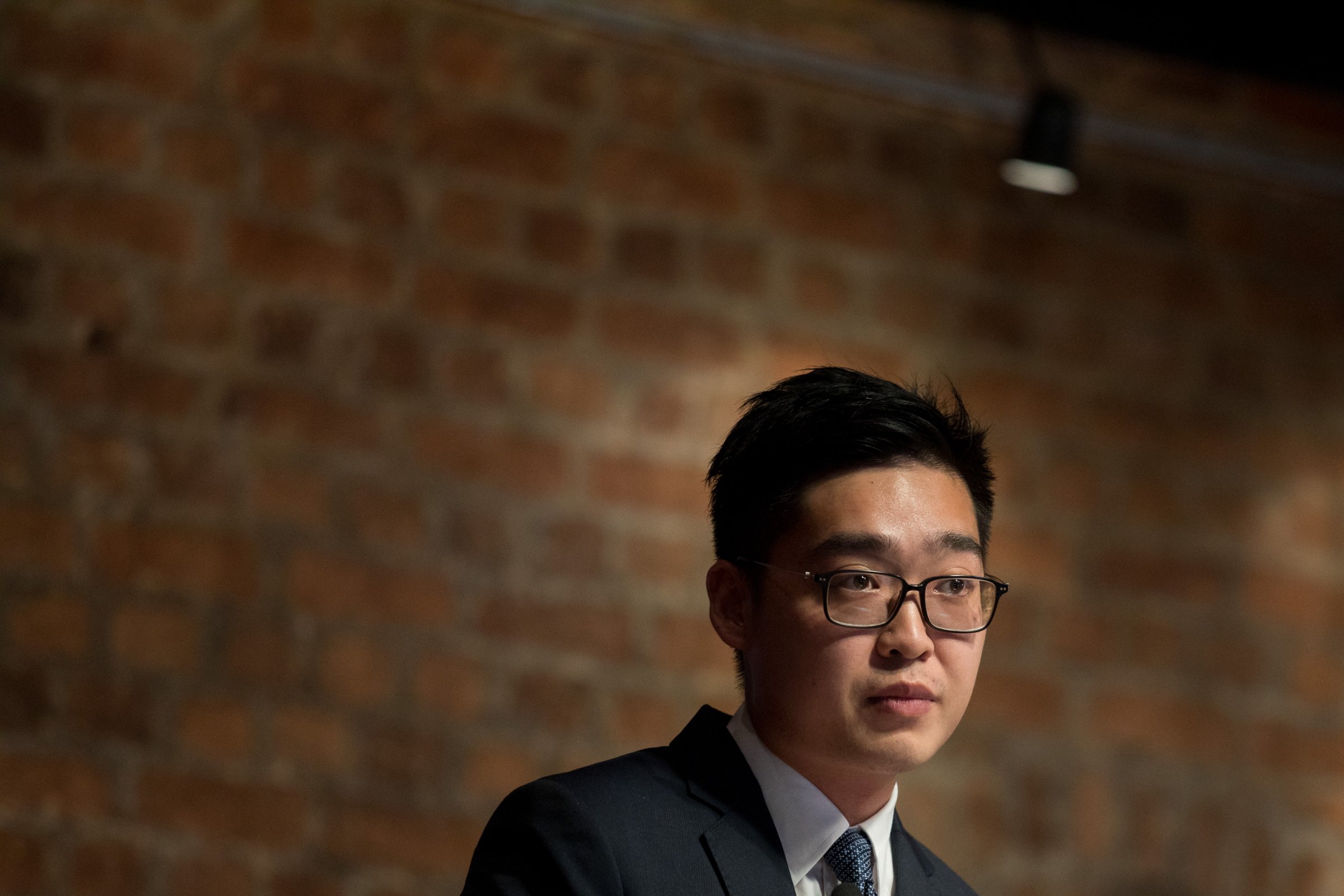
The Hong Kong government on Monday banned a separatist political party in an unprecedented step that has reignited fears of Beijing’s encroachment on the semi-autonomous region.
Hong Kong’s security bureau chief John Lee said the embargo on the Hong Kong National Party (HKNP) was necessary on national security grounds. The ban comes three months after Hong Kong authorities first announced intentions to dissolve the party, which provocatively advocates for independence from China.
“I hereby order that the operation or continued operation of the Hong Kong National Party in Hong Kong be prohibited,” read Monday’s notice.
Anyone found leading the group in violation of the order could face up to three years in prison and maximum fines of $12,000, the Hong Kong Free Press (HKFP) reports.
Andy Chan, the party’s 27-year-old convener, did not immediately respond to a request for comment.
Monday’s ban cited a colonial-era ordinance that has not been enforced since the 1997 transfer of Hong Kong from British to Chinese rule, according to HKFP.
This flexing of an infrequently practiced injunction to outlaw a party — the first such ban since Hong Kong ceased to be a British colony — has renewed concerns over Beijing’s growing influence. Hong Kong has long feared the erosion of freedoms promised under a framework called “One Country, Two Systems.” But Chinese leader Xi Jinping has made it clear that separatist movements will not be tolerated.
The Hong Kong National Party, an offspring of the city’s pro-democracy camp, was thrust into the spotlight this July when the Hong Kong government first recommended a ban.
Controversy escalated when the city’s Foreign Correspondents’ Club hosted Chan for a panel despite pressure from the Chinese government to cancel the event. A representative of China’s Ministry of Foreign Affairs had urged the club to disinvite Chan on the basis that the party’s platform could pose a threat to national security.
Read more: Who is Hong Kong Independence Leader Andy Chan?
Chan did not capitulate to the pressure or soften his rhetoric. In an address titled, “Hong Kong Nationalism: A Politically Incorrect Guide to Hong Kong Under Chinese Rule,” he repeatedly called China a “colonizer” that threatened Hong Kong’s way of life.
“Time and time again, our government has shown whatever freedom or democracy they claim to be upholding are just communist mirages,” Chan said.
In response, the Hong Kong government condemned the speech. “It is totally inappropriate and unacceptable for any person to openly promote and advocate the independence of Hong Kong,” a spokesman said.
Fears of Beijing’s growing interference in the former colony have intensified in the aftermath of the mass pro-democracy uprising in 2014. Known as the Umbrella Revolution, the movement saw protesters and activists occupy central streets for two and a half months, propelled by a perceived erosion of Hong Kong’s unique freedoms, which are not enjoyed on the mainland.
HKNP was founded in the wake of the movement in 2016. Chan was among a slew of nascent Hong Kong politicians barred from elections that year after they refused to sign a pledge saying Hong Kong is an inalienable part of China.
While Chan’s platform for independence is by no measure popular throughout the financial hub, it does highlight the rising anxieties and desires for greater autonomy. At the same time, Chan and HKNP have alienated some democracy supporters who see him as endangering the movement, which is not campaigning for full-blown independence, but for Hong Kong to be given the right to elect its own leader.
According to HKNP, Chan will have 30 days to file an appeal of the ban.
More Must-Reads from TIME
- Cybersecurity Experts Are Sounding the Alarm on DOGE
- Meet the 2025 Women of the Year
- The Harsh Truth About Disability Inclusion
- Why Do More Young Adults Have Cancer?
- Colman Domingo Leads With Radical Love
- How to Get Better at Doing Things Alone
- Michelle Zauner Stares Down the Darkness
Contact us at letters@time.com